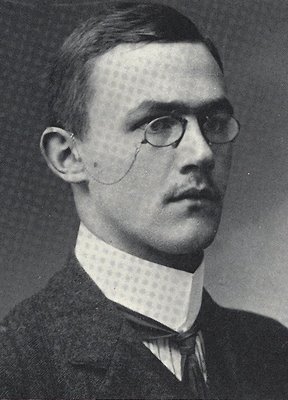 100 years ago this week—Sunday evening January 16, 1916—Karl Barth delivered a lecture at City Church of Aarau, Switzerland. The lecture, entitled “The Righteousness of God” is his first major piece of work after his break with the liberal theology of his student years. It is also the lecture that Barth chose to stand at the head of his first collection of occasional essays published in 1924. Two English translations exist, the first in The Word of God and the Word of Man (1928, 1956), and more recently a new translation in a critical edition by Amy Marga in The Word of God and Theology (2011).
100 years ago this week—Sunday evening January 16, 1916—Karl Barth delivered a lecture at City Church of Aarau, Switzerland. The lecture, entitled “The Righteousness of God” is his first major piece of work after his break with the liberal theology of his student years. It is also the lecture that Barth chose to stand at the head of his first collection of occasional essays published in 1924. Two English translations exist, the first in The Word of God and the Word of Man (1928, 1956), and more recently a new translation in a critical edition by Amy Marga in The Word of God and Theology (2011).
The lecture is much like a sermon in its structure, rhetoric and passion, and includes potent imagery and thought. Barth in early 1916 is still operating with a Kantian understanding of conscience, and already evident is the kind of “process eschatology” (McCormack) that will emerge full-blown in his first commentary on Romans (1918/1919) and be decisively rejected in his second commentary on Romans in 1921. Thus in this lecture Barth is still emerging from the theology of his student years.
In my commentary on this lecture (see my Church as Moral Community, 58-64) I note that the lecture is a meditation on two wills, the will of God and human will. It is not an abstract reflection, however, on the age-old theological conundrum about the relation of divine and human willing, but is oriented rather to the form of life that emerges from each of these wills:
Whereas the absurd and senseless will of the world results in oppression and suffering, God’s will heard and recognised will result in ‘another life,’ and the arising of ‘a new world’. For this to occur, declares Barth, ‘we must let conscience speak for…it remains forever the place, the only place between heaven and earth, in which God’s righteousness is manifest’ (59).
Here are some citations from the lecture, taken from the earlier translation.
When we let conscience speak to the end, it tells us not only that there is something else, a righteousness above unrighteousness, but also—and more important—that this something else for which we long and which we need is God.…We make a veritable uproar with our morality and culture and religion. But we may presently be brought to silence, and with that will begin our true redemption (Barth, Word of God and Word of Man, 23-24).
Barth assails our fervent religious activity by which we endeavour to protect ourselves against God, and against the claim his righteousness makes on us:
What is the use of all the preaching, baptizing, confirming, bell-ringing, and organ-playing, of all the religious moods and modes, the counsels of ‘applied religion’…the efforts to enliven church singing, the unspeakably tame and stupid monthly church papers, and whatever else may belong to the equipment of modern ecclesiasticism? Will something different eventuate from all this in our relation to the righteousness of God?…Are we not rather hoping by our very activity to conceal in the most subtle way the fact that the critical event that ought to happen has not yet done so and probably never will? (Barth, 20, emphasis added).
Barth rejects in the most vigorous terms any form of Christianity which would isolate itself from the wider social context in which it is found. Privatised religion is escapist and self-indulgent in its orientation, and actually suppresses the righteousness of God which confronts humanity in conscience. The true church, and therefore, true Christianity, is that which arises when the voice of conscience is allowed to speak:
In the midst of the old world of war and money and death.…Lights of God rise in the darkness, and powers of God become real in weakness. Real love, real sincerity, real progress become possible; morality and culture, state and nation, even religion and the church now become possible—now for the first time! One is taken with the vision of an immortality or even of a future life here on earth in which the righteous will of God breaks forth, prevails, and is done as it is in heaven (Barth, 25-26).
The lecture itself is quite short and easily read. Although written 100 years ago in the midst of World War I, its message is still very relevant indeed. I found a copy of the new translation on Google books. I don’t know how those websites work, if they always show the same sections of the books, or not, but the whole lecture was there when I checked it. I highly recommend it!